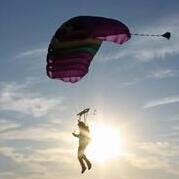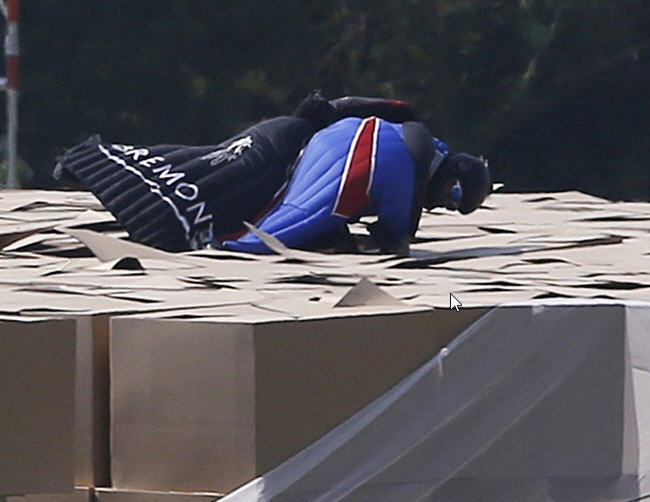Recommended Posts
Would it be possible to lean over and take deep breathes to exhale the water? or does your tissue soak it up? Scary if you can't hear it in your lungs, and can't get anything out and then could die
MagicGuy 0
Scary, but good to know. Thanks for sharing.
Loonix 0
QuoteQuoteI learned about this through scubadiving, but understood it as a fairly well known problem
I'm a scuba instructor, and I've never heard this called "dry-drowning" - in SSI, it falls under the 'pulmonary edema' umbrella of illnesses, which we would treat with 100% oxygen until they get to medical care ... IF we could identify it! The problem seems like it's really hard to identify. People get tired (for a variety of reasons), change behaviour (excited or tired or overwhelmed) and have difficulty breathing (wet suit or BC too tight or a number of other reason) all the time when diving. Usually we identify problem from a combination of symptoms, but it's really hard to tell with borderline cases. You don't want to over-react to every little symptom that someone has, but you don't want them to walk around sick or dying either.
Scary stuff.
I can't remember if we used the term "dry drowning", in fact, I doubt we did. Can't remember exactly what we called it, and can't be bothered to look up in the books either right now ... But I thought dry drowning meant drowning without inhaling water - suffocation. We have pretty strong reflexes preventing us from inhaling water.
Yes, treat with oxygen, but again, what we learned is don't look for symptoms. If one believe the victim has inhaled water, they NEED help, regardless of any symptoms.
Do you think it's possible to inhale water without noticing? Sounds pretty strange to me. Perhaps some lifeguard on the forum could chip in and enlighten us.
Loonix 0
QuoteWould it be possible to lean over and take deep breathes to exhale the water?
This is exactly what you must not do. Water in the lungs makes the alveolies (that's probably misspelled...) in the lungs collapse. Therefore you must move as little as possible until help arrives, to avoid the water spreading. Breathe oxygen if possible.
riddler 0
QuoteDo you think it's possible to inhale water without noticing?
It's definitely possible to inhale water and forget later. Cough, cough, choke, choke - oh, look, a shark! Hey, I'm feeling pretty good at the moment, that was a great dive!
Symptoms tend to more of a "why are they convulsing right now?" thing.
Trapped on the surface of a sphere. XKCD
grue 1
QuoteWow...I've been around pools all my life, and I've never, ever heard of this. Scary.
Think that's scary? I've been a certified lifeguard and water safety instructor for 11 years, and _I_ have never heard of it.
cavete terrae.
Squeak 17
QuoteQuoteWow...I've been around pools all my life, and I've never, ever heard of this. Scary.
Think that's scary? I've been a certified lifeguard and water safety instructor for 11 years, and _I_ have never heard of it.
That is scary, it's one of the 1st things i was taught as a life guard. Near drowing patients should be sent to hospital.
Particularly in salt water, osmosis causes the lungs to secrete fluid to try and equalise the salt concentraion in the alvioli. causing you to drown.
Salt water aspiration, and secondary drowning are also what i have heard it called.
You are not now, nor will you ever be, good enough to not die in this sport (Sparky)
My Life ROCKS!
How's yours doing?
My Life ROCKS!
How's yours doing?
grue 1
QuoteQuoteQuoteWow...I've been around pools all my life, and I've never, ever heard of this. Scary.
Think that's scary? I've been a certified lifeguard and water safety instructor for 11 years, and _I_ have never heard of it.
That is scary, it's one of the 1st things i was taught as a life guard. Near drowing patients should be sent to hospital.
Particularly in salt water, osmosis causes the lungs to secrete fluid to try and equalise the salt concentraion in the alvioli. causing you to drown.
Salt water aspiration, and secondary drowning are also what i have heard it called.
Interesting. I was never a coastal lifeguard, just lake/river/pool. I know the training IS different for coastal, that must be one of the things they cover
cavete terrae.






I'm a scuba instructor, and I've never heard this called "dry-drowning" - in SSI, it falls under the 'pulmonary edema' umbrella of illnesses, which we would treat with 100% oxygen until they get to medical care ... IF we could identify it! The problem seems like it's really hard to identify. People get tired (for a variety of reasons), change behaviour (excited or tired or overwhelmed) and have difficulty breathing (wet suit or BC too tight or a number of other reason) all the time when diving. Usually we identify problem from a combination of symptoms, but it's really hard to tell with borderline cases. You don't want to over-react to every little symptom that someone has, but you don't want them to walk around sick or dying either.
Scary stuff.
Share this post
Link to post
Share on other sites